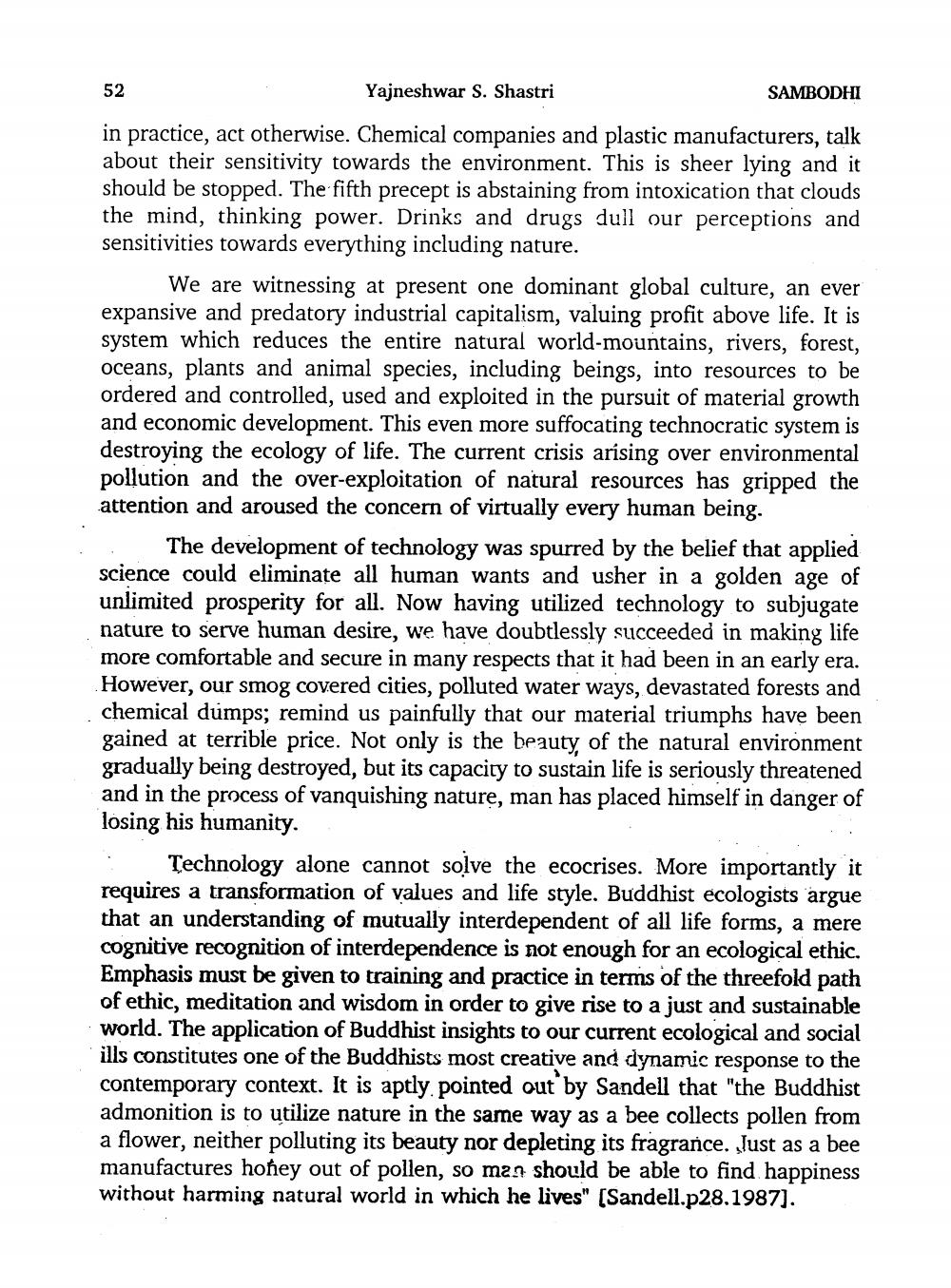________________
52
Yajneshwar S. Shastri
SAMBODHI
in practice, act otherwise. Chemical companies and plastic manufacturers, talk about their sensitivity towards the environment. This is sheer lying and it should be stopped. The fifth precept is abstaining from intoxication that clouds the mind, thinking power. Drinks and drugs dull our perceptions and sensitivities towards everything including nature.
We are witnessing at present one dominant global culture, an ever expansive and predatory industrial capitalism, valuing profit above life. It is system which reduces the entire natural world-mountains, rivers, forest, oceans, plants and animal species, including beings, into resources to be ordered and controlled, used and exploited in the pursuit of material growth and economic development. This even more suffocating technocratic system is destroying the ecology of life. The current crisis arising over environmental pollution and the over-exploitation of natural resources has gripped the attention and aroused the concern of virtually every human being.
The development of technology was spurred by the belief that applied science could eliminate all human wants and usher in a golden age of unlimited prosperity for all. Now having utilized technology to subjugate nature to serve human desire, we have doubtlessly succeeded in making life more comfortable and secure in many respects that it had been in an early era. However, our smog covered cities, polluted water ways, devastated forests and chemical dumps; remind us painfully that our material triumphs have been gained at terrible price. Not only is the beauty of the natural environment gradually being destroyed, but its capacity to sustain life is seriously threatened and in the process of vanquishing nature, man has placed himself in danger of losing his humanity. :: Technology alone cann the ecocrises. More importantly it requires a transformation of values and life style. Buddhist ecologists argue that an understanding of mutually interdependent of all life forms, a mere cognitive recognition of interdependence is not enough for an ecological ethic. Emphasis must be given to training and practice in terms of the threefold path of ethic, meditation and wisdom in order to give rise to a just and sustainable world. The application of Buddhist insights to our current ecological and social ills constitutes one of the Buddhists most creative and dynamic response to the contemporary context. It is aptly. pointed out by Sandell that "the Buddhist admonition is to utilize nature in the same way as a bee collects pollen from a flower, neither polluting its beauty nor depleting its fragrance. Just as a bee manufactures honey out of pollen, so man should be able to find happiness without harming natural world in which he lives" (Sandell.p28.1987).




